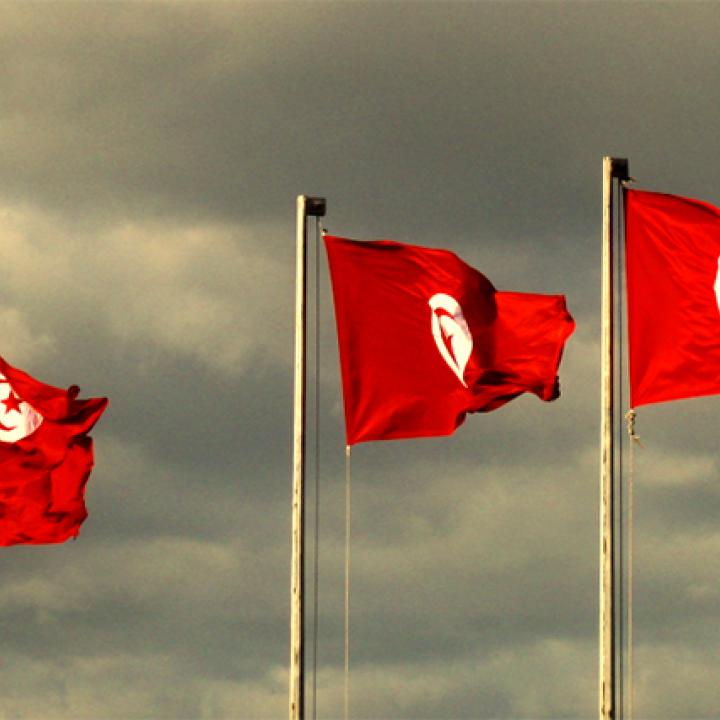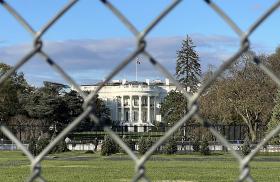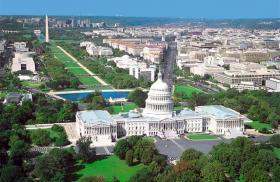
- Policy Analysis
- Articles & Op-Eds
In Tunisia, U.S. Tariffs Will Be Felt Across Many Fronts
Also published in Arabian Gulf Business Insight

For producers, the main concern is not lost revenue or market share but instead damage to relationships they have worked hard to cultivate.
From the beginning of this month, the US started imposing a 25 percent tariff on all goods imported from Tunisia. In a formal letter sent on July 7, Washington cited the North African state’s “long-term and very persistent” trade surplus with the US as the reason for the levy. While Tunisia is not a major trading partner of the US, this decision highlights a broader shift in American trade policy, one that prioritises short-term bilateral balances over long-standing economic and security relationships. For smaller economies like Tunisia, the implications are significant.
Missed Opportunities
Tunisia is home to 12 million people. Its main exports include automobile parts, textiles, garments, petroleum and agricultural products. Only 3 percent of Tunisian exports go to the US. In 2024, Tunisia ran a trade surplus with the US of $621 million, according to US census data. This same source shows that over the last few years Tunisian imports from the US sometimes exceeded exports, suggesting that the two countries’ trade is generally balanced.
The country’s main export to the US is olive oil. For producers, the main concern regarding the tariffs is not lost revenue or market share among US consumers. Instead, they worry about the damage the tariffs will cause to relationships they have worked hard to cultivate. One such producer believes that at the root of his company and its products lies a cultural heritage that led Tunisia to be the first Arab country, under President Habib Bourguiba (r. 1956–1987), to outlaw polygamy and dramatically reduce illiteracy rates among girls. Suddenly to block bilateral trade threatens a more than 200-year friendship between the two countries, rooted in shared Western values and an outlook which has shaped Tunisian identity.
For other exporters, the tariffs represent a missed opportunity. This applies particularly to small artisan collectives, which have been benefitting from US funds to develop markets in North America. Exports of Tunisian olive wood products, including bowls and other kitchen items, as well as decorative pieces carved from olive tree trunks, had begun to increase thanks to a reduction in similar products coming from southern European countries, which have shifted to machine harvesting of olives. The threat of tariffs has reportedly begun to have a chilling effect among these artisans, who must now look elsewhere as they seek to expand exports.
Damaging Effects
Tunisia’s economy is already ailing, thanks to decades of inefficient policies. Following the 2011 “Arab Spring” revolution, successive governments have put off reforms that would have helped attract investment, leaving the country with a high level of indebtedness. Although major sectors like tourism have begun to recover from the impact of the Covid-19 pandemic, and the government has acknowledged the need to revive the phosphate and energy industries, Tunisia’s debt levels have continued to rise.
On July 22, during an official visit from US special advisor for the Middle East and Africa Massad Boulos and deputy assistant secretary for North Africa Josh Harris, Tunisian President Kais Saeid told his guests that his country had decided to diversify its strategic partnerships “to serve the interests of its people.” The remark about strategic partners undoubtedly hints at Russia and China; Tunisia also appears to be deepening its relationship with Iran.
Saied’s comments should not necessarily be interpreted as a direct response to Trump’s tariff threat. The Tunisian president was speaking to deeply pro-Palestinian sentiment among his population and may have chosen to take a harshly anti-American stance even without the July 7 letter. He has also regularly discussed reorienting his country’s strategic partnerships. Meanwhile, the US-Tunisia relationship has suffered as its democratic trajectory has increasingly fallen away.
But the result is clear: this Arab country—known for its historical embrace of Western values, being the first to eliminate slavery, emphasising equality between men and women, and from 2014 to 2022 having the most liberal constitution in the Arab world—is pushing full steam ahead on a re-orientation away from Western alignment and Western ideals.
Sabina Henneberg is a senior fellow at The Washington Institute and director of its Junior Research Program. This article was originally published on the Arabian Gulf Business Insight website.



